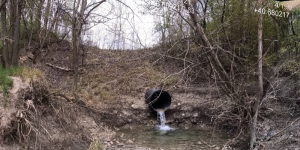Blog Post
Environmental Crimes Bulletin December 2023 Week 1
In this issue:
- United States v. Harvey N. Anthony, et al., No. 22-CR-00041 (D. Alaska), AUSAs Steven Skrocki and Seth Brickey
- United States v. Sean Paschall, et al., No. 3:23-CR-00638 (D.S.C.), AUSA Elle Klein
- United States v. Rafael Carballo-Díaz, et al., Nos. 3:23-CR-00440, 00441 (D.P.R.), ECS Senior Trial Attorney Patrick Duggan, AUSA Seth Erbe, and ECS Law Clerk Amanda Backer
United States v. Harvey N. Anthony, et al., No. 22-CR-00041 (D. Alaska), AUSAs Steven Skrocki and Seth Brickey
On December 4, 2023, hunter Harvey N. Anthony and his company pleaded guilty to violating the Lacey Act for illegally killing black bears between 2011 and 2018 in the Kenai Fjords National Park (16 U.S.C. §§ 3372(d)(2) and 3373(d)(3)(B)). Sentencing is scheduled for March 4, 2024.
Anthony, a resident of Maine, hosts a hunting television show called “Bear Whisperer,” which is produced by Nature Productions, Inc., a company incorporated in Maine. The defendants used footage from 2015 and 2017 hunting trips in episodes of the “Bear Whisperer,” including footage of two black bear kills within the park.
In May 2017, with the help of an Alaska resident (Individual A), Anthony killed a black bear within the park’s borders. He then transported the bear from the park, to Individual A’s boat, which was used to bring it to Homer, Alaska.
On May 12, 2017, Anthony filed a false sealing certificate with the State of Alaska claiming he had taken the bear from Berger Bay (where hunting is permitted) instead of the park, almost 20 miles away. Following taxidermy work in Alaska, Anthony arranged to ship the animal back to Maine.
The National Parks Service and the U.S. Fish and Wildlife Service conducted the investigation.
United States v. Sean Paschall, et al., No. 3:23-CR-00638 (D.S.C.), AUSA Elle Klein
On December 5, 2023, a court sentenced Sean Paschall to pay a $5,000 fine and $3,000 in restitution (joint and several) to the Kansas Department of Wildlife and Parks. Paschall will also complete a two-year term of probation. Chad Seymore was sentenced November 28, 2023, to pay a $10,000 fine and complete a three-year term of probation. A third defendant, Justin LeMaster, has not yet been sentenced.
Between September 2018 and December 2019, the three hunters transported deer heads from Kansas into South Carolina. One of these heads was tested and came back positive for chronic wasting disease. Thre three pleaded guilty to Lacey Act misdemeanor violations (16 U.S.C. §§ 3372(a)(2)(A), 3373(d)(2)).
The South Carolina Department of Natural Resources and the U.S. Fish and Wildlife Service Office of Law Enforcement conducted the investigation.
United States v. Rafael Carballo-Díaz, et al., Nos. 3:23-CR-00440, 00441 (D.P.R.), ECS Senior Trial Attorney Patrick Duggan, AUSA Seth Erbe, and ECS Law Clerk Amanda Backer
On December 6, 2023, a grand jury returned two indictments charging three defendants with violating the Clean Water Act (CWA). The charges relate to the illegal construction and deposit of material into the wetlands and waters of the United States in the Jobos Bay National Estuarine Research Reserve (Jobos Estuarine Reserve).
Between June 2018 and December 2023, Rafael Carballo-Díaz and Nathaniel Hernández-Claudio knowingly discharged fill material from excavation and earth moving equipment into the wetlands and waters of the United States. Carballo-Díaz operated a guesthouse business called El Cacique Resort on the property located at the southwest end of Camino del Indio in the Las Mareas area of Salinas, Puerto Rico. Hernández-Claudio acted as a host and property manager at the Resort.
The second indictment charges Awildo Jiménez-Mercado with violating the CWA and the Rivers and Harbors Act. Jiménez-Mercado knowingly and illegally discharged fill material from excavation and earth moving equipment into the wetlands and built a boat dock. Jiménez-Mercado also operated a guest house business called “Hidden Paradise” on a separate property. Both El Cacique Resort and Hidden Paradise offered guests a pool, outdoor dining areas and housing units as short-term rentals.
The Jobos Estuarine Reserve was designated as a National Estuarine Research Reserve by the National Oceanic and Atmospheric Administration in 1981 and is comprised of approximately 2,800 acres of coastal ecosystems in the southern coastal plain of Puerto Rico. The Jobos Estuarine Reserve contains mangrove islands, mangrove forests, tidal wetlands, coral reefs, lagoons, salt flats, dry forest, and seagrass beds. It is also home to the endangered brown pelican, peregrine falcon, hawksbill turtle, and West Indian manatee.
The Caribbean Environmental Crimes Task Force conducted the investigation. Agencies include: The U.S. Environmental Protection Agency Criminal Investigation Division, the Federal Bureau of Investigation, the U.S. Department of the Army Criminal Investigation Division, the U.S. Department of Commerce Office of Inspector General, National Oceanic and Atmospheric Administration Office of Law Enforcement, and the U.S. Fish and Wildlife Service Office of Law Enforcement.
Updated February 1, 2024

 U.S. Department
of Justice
U.S. Department
of Justice

